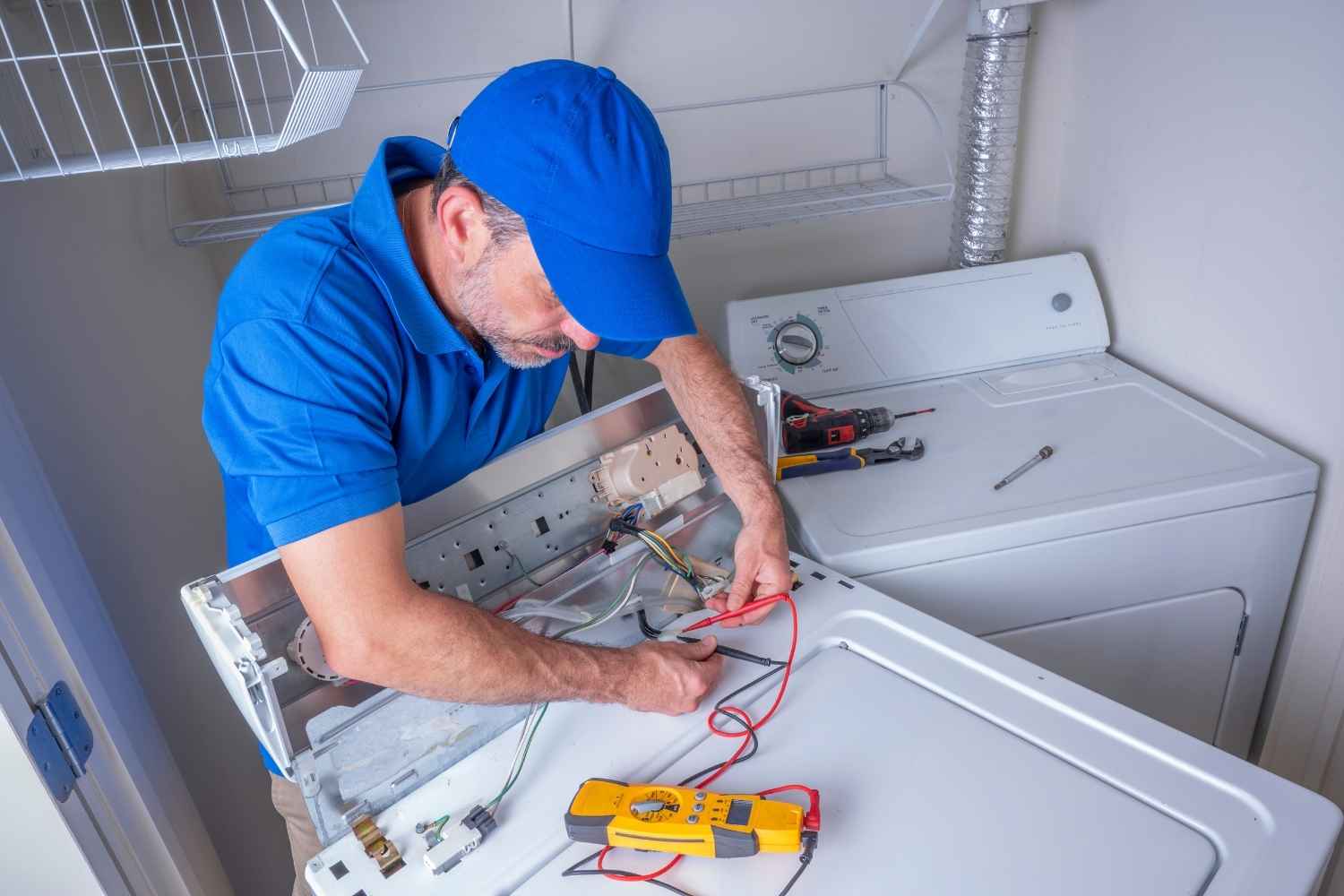When Your Appliances Fail: Should you Repair or Replace?
Your appliances are the silent workhorses of your home — keeping food fresh, clothes clean, and daily life running smoothly. But when your refrigerator stops cooling or your washing machine refuses to spin, the disruption can be frustrating and costly. Should you repair it or replace it entirely?
And how do you find a trustworthy appliance technician? This guide will walk you through common appliance problems, the repair vs. replace decision, and how to keep your appliances running for years.
1. Common Appliance Problems at Home
1.1 Refrigerators and Freezers
-
Cooling Issues – Weak cooling can result from dirty condenser coils, malfunctioning fans, or failing compressors.
-
Leaks – Water pooling under the fridge may indicate a clogged defrost drain or a damaged water line.
1.2 Washing Machines
-
Not Spinning or Draining – Often caused by worn belts, clogged drains, or faulty lid switches.
-
Loud Noises – Excessive vibrations can signal unbalanced loads or failing drum bearings.
1.3 Dishwashers
-
Poor Cleaning – Clogged spray arms or defective pumps can leave dishes dirty after a cycle.
-
Water Leaks – Worn door gaskets or damaged hoses are common culprits.
1.4 Ovens and Stoves
-
Temperature Inaccuracy – Faulty thermostats or heating elements can cause uneven cooking.
-
Ignition Problems – Gas burners may fail to ignite due to dirty igniters or faulty spark modules.
2. Repair vs. Replace — Making the Right Call
The choice between repairing or replacing often comes down to:
2.1 Age of the Appliance
If your appliance is nearing or past its average lifespan — refrigerators (12–15 years), washing machines (10–12 years), dishwashers (8–10 years) — replacement may be more cost-effective.
2.2 Cost of Repair
A good rule is the 50% rule: if repair costs exceed half the price of a new unit, replacement may be the smarter option.
2.3 Energy Efficiency
Older appliances tend to consume more electricity. Upgrading to an Energy Star–rated model could reduce your utility bills significantly.
2.4 Frequency of Breakdowns
If you’re calling a technician multiple times a year for the same appliance, replacement is likely the better long-term choice.
3. What to Expect From Appliance Repair Professionals
3.1 Initial Assessment
A technician will inspect the appliance, identify the issue, and give you a repair estimate before beginning work.
3.2 Skilled Diagnosis and Repair
Experienced pros can quickly pinpoint whether a faulty part, electrical issue, or mechanical failure is causing the problem. They typically carry common replacement parts to speed up repairs.
3.3 Installation Services
Many appliance technicians also handle installation of new units, ensuring they’re correctly connected and functioning from day one.
4. How to Find Trusted Technicians
4.1 Check Credentials and Reviews
Look for licensed and insured professionals with positive customer feedback. Platforms like Billy.com allow you to browse reviews, see ratings, and compare service providers in your area.
4.2 Get Multiple Quotes
Prices can vary significantly between providers. Using comparison tools ensures you get the best value for your repair.
4.3 Ask About Warranties
A good technician will stand behind their work with a service warranty, covering parts and labor for a specified period.
5. Maintenance Tips to Extend Appliance Life
5.1 Regular Cleaning
-
Clean refrigerator coils twice a year.
-
Wipe dishwasher filters and seals regularly.
-
Remove lint from dryer vents after each use to prevent overheating.
5.2 Proper Usage
Follow the manufacturer’s load and usage guidelines — overloading washers or dishwashers can shorten their lifespan.
5.3 Preventive Servicing
Have appliances inspected once a year to catch small issues before they turn into major repairs.
Conclusion
A broken appliance doesn’t always mean it’s time to shop for a new one. By evaluating the cost, age, and efficiency of your machine — and working with skilled, reliable technicians — you can make smart, cost-effective decisions. And with regular maintenance, you’ll maximize the lifespan of your household workhorses.



